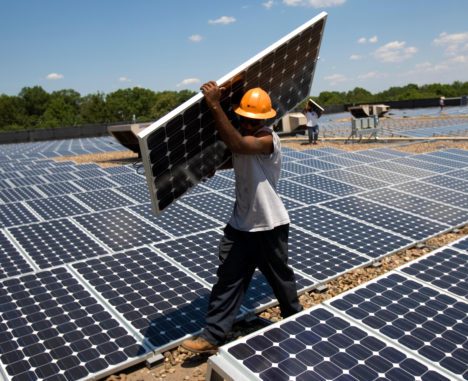
Expanding access to solar with California’s Green Tariff Shared Renewables decision
The Clean Coalition believes that those disproportionately affected by pollution should have access to renewable energy, and will continue to aim for this goal.
The California Public Utilities Commission (CPUC) issued a decision last month on the Green Tariff Shared Renewables (GTSR) program, which included a modification proposed by the Clean Coalition’s policy team. The GTSR program requires the state’s largest investor-owned utilities to offer renewable energy options to their customers. The program was established to expand access to renewable energy resources not only for industrial and commercial customers, but also for individual consumers.
100% of a customer’s electricity needs can be satisfied with solar generation through two distinct models: the “Green Tariff” program, whereby a customer purchases solar-powered energy directly from the utility; or the “Enhanced Community Renewables” program, which allows customers to contract directly with solar developers.
The Clean Coalition policy team’s victory in this proceeding was in convincing the CPUC to allow sub-500 kW renewable energy projects to participate in the GTSR program. The decision also addressed a number of other aspects of the Enhanced Community Renewables model of the GTSR program, but the sub-500 kW allowance was one of the Clean Coalition’s main issues of focus in the proceeding.
Making sure the program supports smaller resources sited closer to loads is particularly important for low income communities and communities of color. In openingcommentsand joint-partyreply commentsfiled in the GTSR proceeding, the Clean Coalition argued that the most suitable multi-family rooftops and parking lots for siting solar resources in disadvantaged communities contain less than 500 kW of capacity on average. Further, siting these projects in these communities would yield economic, health, and environmental benefits, in addition to the locational benefits of generating clean energy close to consumption.
The Clean Coalition believes areas with socioeconomic vulnerabilities and those disproportionately affected by pollution should also have access to renewable energy, and the policy team will continue to push for refinements and improvements to support this goal.

